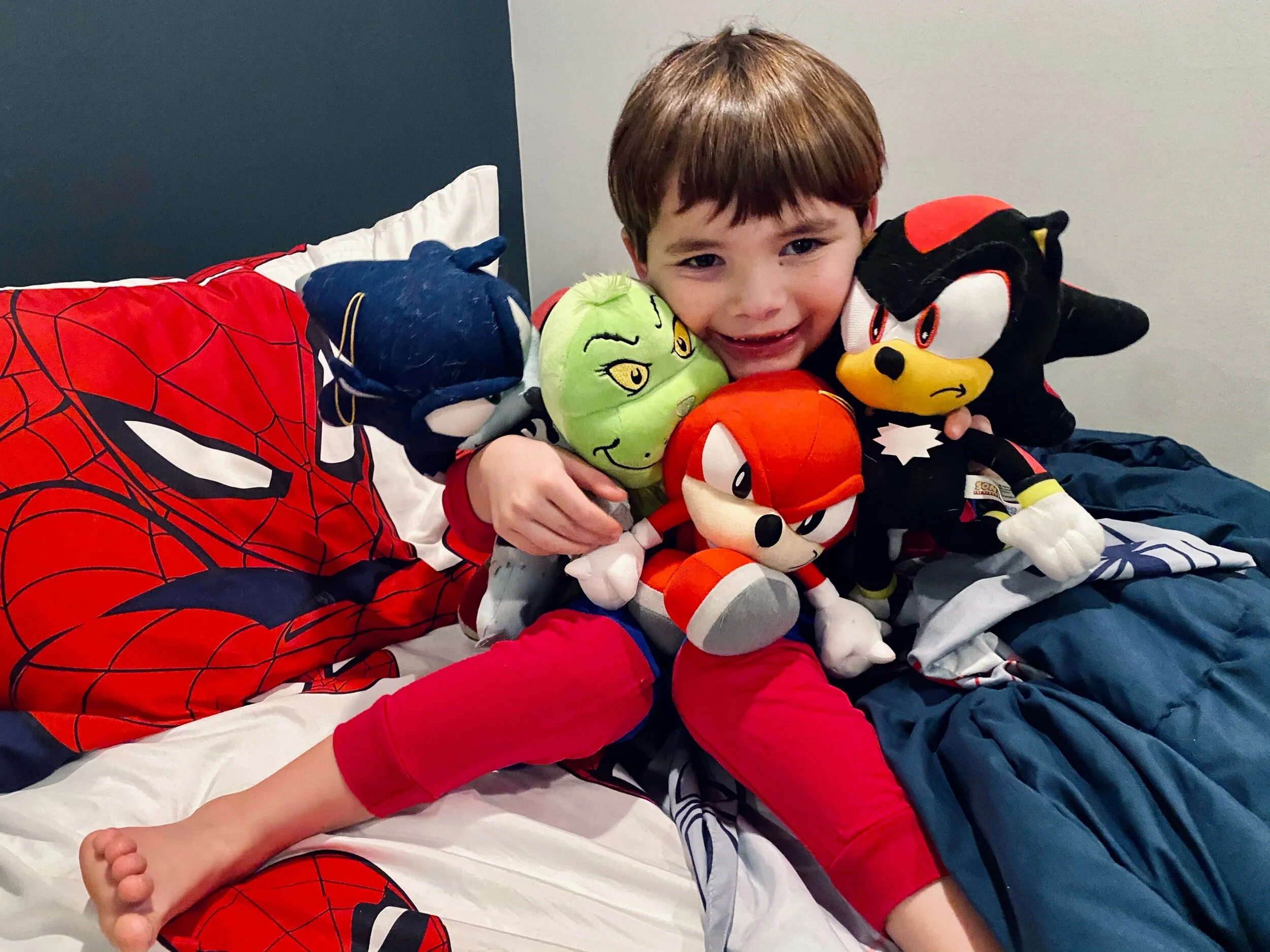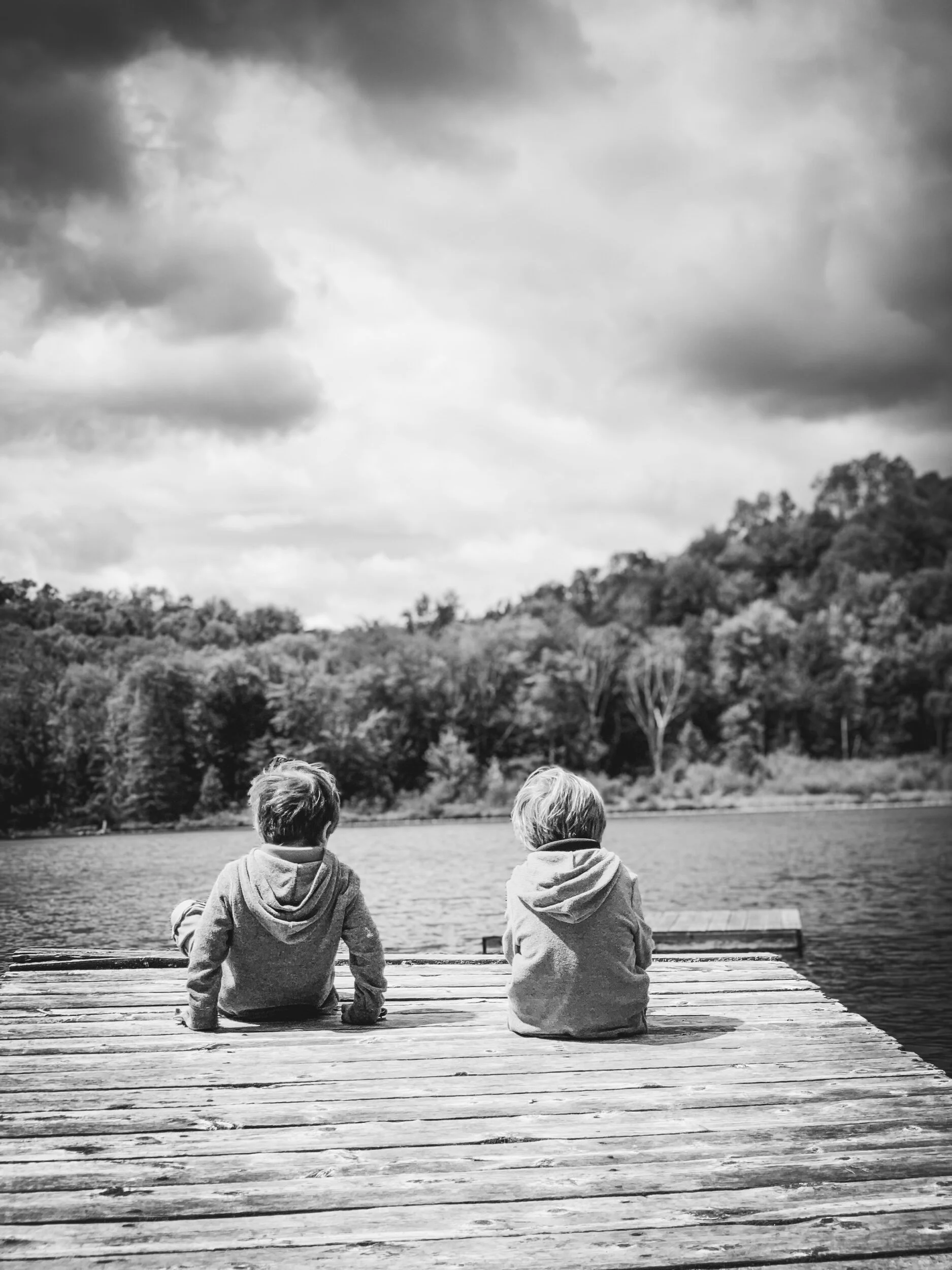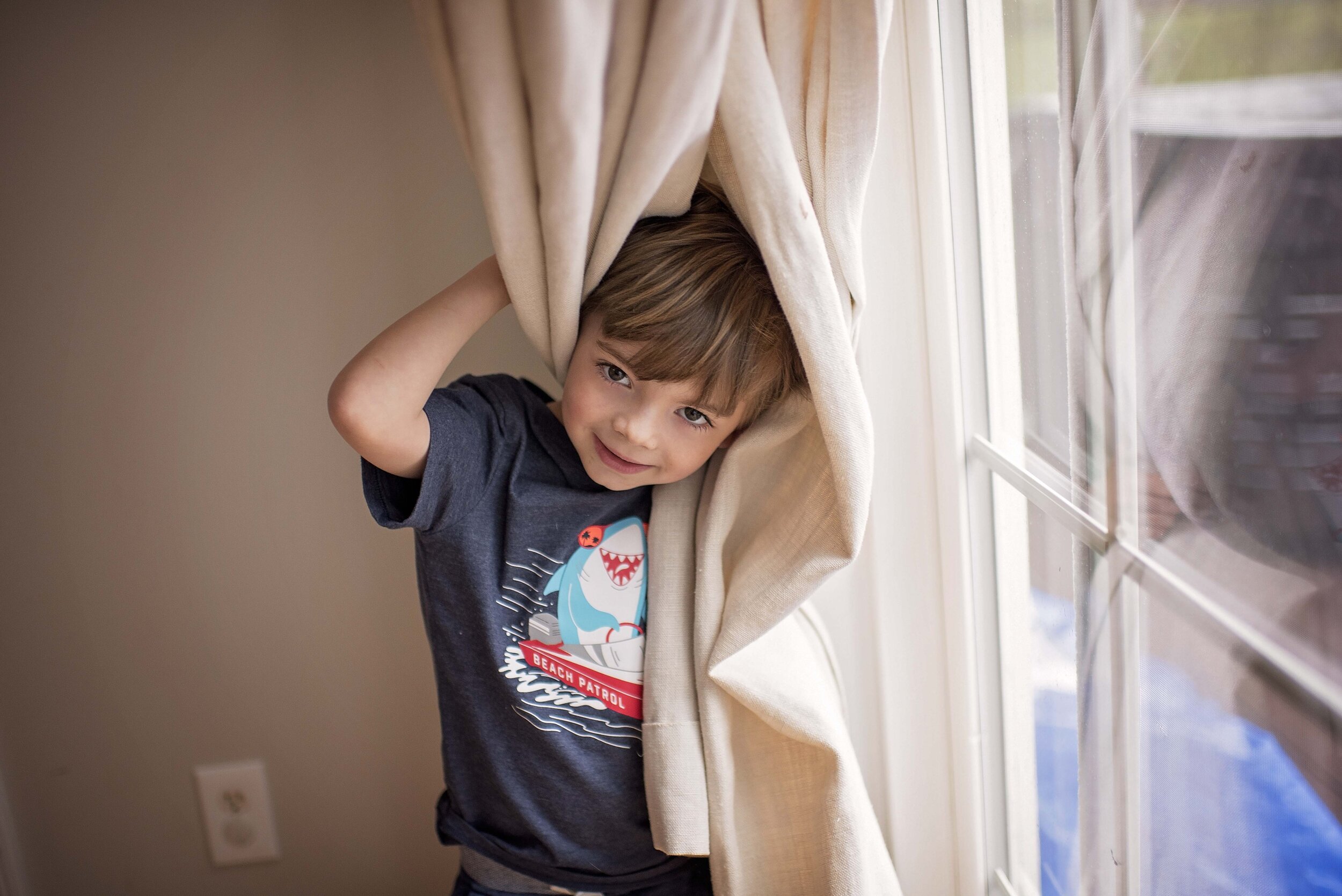I’m often asked, how one knows if they or their child is autistic?
It’s been the question at the top of my own mind for the last 13 months. A fixation, if I confess fully, that had me so caught up that it left me speechless until I could find the answers. And now that I’ve found some, here is what I know.
The DSM-5 categorizes autism as:
Autism spectrum disorder (ASD) is a developmental disability that can cause significant social, communication and behavioral challenges. There is often nothing about how people with ASD look that sets them apart from other people, but people with ASD may communicate, interact, behave, and learn in ways that are different from most other people. The learning, thinking, and problem-solving abilities of people with ASD can range from gifted to severely challenged. Some people with ASD need a lot of help in their daily lives; others need less.
In my experience, having now gone through 5 evaluations (one for each of the twins, two for Alex, and one personally), the one outlying factor that places a human on the autism spectrum is the inability to connect with others. Yes, as mentioned above, there is always a communication deficit (typically a speech delay), and some evident need for self-stimulation or lack of ability to self-regulate, but the most commonly noted is the lack of connection.
However, what seems to be consistently ignored in the last decade, is that prior to 2013- when Asperger Syndrome” diagnosis was eliminated from the American Psychiatric Association’s Diagnostic Manual of Mental Disorders, 5th Edition (DSM-V), one of the differentiators between Aspergers, otherwise known as High-Functioning Autism, and Autism (what was considered to be lower-functioning autism), was that those on the Asperger’s end of the spectrum lived for connection with others. Where their wiring was criss-crossed was their ability to interpret connection with accuracy. Now that the diagnosis of one having Autism Spectrum Disorder is all inclusive, that lack of wanting or ability to connect seems to be confused for all who fall into the category, where once was a indicator otherwise.
As I’ve clarified in the past, I have no medical education that makes me any sort of expert on this subject, but have been living with it “officially” for the last five years, so I’m simply sharing our experiences in case it can help others. Here is how I can best explain the difference in the two ends of the spectrum.
Our twins, who have been diagnosed since 18 months, couldn't be more opposite. Yes, in their looks, in their likes, in their personalities - all of it. Very little do they seem to have in common.
This is also true for their autism.
Where Luca falls on the lower end of the spectrum, otherwise known as a category: 3 for (Autism), Jack falls on what used to be known as Aspergers, but now is diagnosed as a Category: 1 (High Functioning Autism).
(If you want to learn about the 5 categories quickly, I find these definitions to be most helpful.)
I have to state for the record that I simply despise the nomenclature this diagnosis goes by because our boys are equal. They came into this world together, only minutes apart, and each is capable of exactly the same thing. Yes, their challenges are different, but all humans are challenged whether or not they admit it. What the diagnosis has given us is more of a map to understand how they are wired, and do our best as their parents to communicate with them in the ways that they learn best, and hopefully support them in the areas they struggle. Outside of opening up our family for support from the medical and academic communities, which we have learned we truly need and our children greatly benefit from, having a diagnosis listed on their medical chart changes nothing about who they are as individuals. The work they do every day; that we do with them; that is what changes what their lives could be tomorrow, and each day forward.
When the twins were evaluated, their team was looking for the following signs (taken from Autism Society’s website):
Speaks later than typical or not at all (nonverbal)
Repetition in language or movement, such as repeating the same word or sounds, hand flapping, or any repeated movement
Atypical nonverbal communication, including avoiding eye contact, giving few facial expressions, or having a monotone
Prefers solitary or parallel play rather than engaging in associative or cooperative play with other children
Extremely distressed by changes, including new foods or changes in schedule
Preference for predictable, structured play over spontaneous or make-believe play
Strong, persistent interest on specific topic, part of a toy, or item
This list, for our twins, is literally split down the middle.
Although both boys were significantly behind in speech (which again, we thought was due to being twin boys, and maybe they just had their own language that they spoke to each other), the rest of the list is split perfectly down the middle between them.
For Luca, he was our hand flapper, our spinner, our one who never stopped moving. He would rock in his high-chair to soothe himself through the heart-burn that he took medication for until he was just over a year old. When something was too loud for him, or felt like sensory overload, you could see him move his body back and forth to calm himself down, almost as if it was focused on the movement to distract him from distress. To this day he will still find the border of a room and walk it with insistency, and even occasionally flap his hands when he is incredibly overwhelmed.
There were months when we thought perhaps Luca was deaf in an ear and just couldn’t tell us, as he wouldn’t always look to you when you’d call his name. Each time we’d think it was time to go to audiology, he’d sing the tone of a song so on pitch you thought it would be impossible that he was deaf. It wasn’t until he went for tubes in February of 2018 that we learned his tubes were so blocked that he was in fact nearly deaf in one ear, and not only did he have tubes placed, but we began working with audiology to ensure he took antihistamines anytime his allergies could be bothering him, as when his allergies clogged his nasal cavities, it also blocked his ears.
Although the hearing question had been answered, we still found that we had to call his name multiple times before he would lock eyes with us to confirm we had his attention. Even then, getting a facial reaction from him took extra effort, and usually a sing-song voice to light up his eyes and show his dufrene markers. *But, when you did, man could that boy’s smile light up a room (and still does - every time)!
And when our pediatrician had told us during the earliest visits of having newborns that we’d find one of the twins would be the “easy” one, we assumed that Luca’s preference to play by himself for hours with preferred toys just gave him that title. As the evaluations began to look at autism, I remember saying to them, “please don’t touch our easy one, he’s our hippy, he’s so easy please, he just beats to the beat of his own drum.”
For Jack, it was the resistance to any sort of change, or interruption in routine that was a clear identifier. The struggles we would have in needing to get him into the car on an errand that just “came up” felt impossible for him. Not to mention that we should have bought stock in Lays Sour Cream and Cheddar Ruffle Chips and White Cheezits because they are the two foods our boy has eaten with every meal since he was able to tell us what he wanted to eat. Yes, we’ve added a few other foods to the list, but his diet is limited and particularly specific.
Jack had, and still has, a very hard time with spontaneous or make-believe play, which is often hard for outsiders to believe, because his imagination is impressive. He is a natural born storyteller, who can perform with great animation. He cannot however, play on his own, or with a peer, without understanding the rules or what is expected of him. (And please note that I say cannot, not will not, as they are two very different things.) His heart suffers in frustration and embarrassment when put in a “play” situation where someone isn’t dictating to him how the game must go, or introducing to him how he wishes to play. Where Luca can take a preferred object and play for hours by himself, lost in a world that only he is in, Jack simply stares at a blank slate. However, when given a script, he can feel every emotion needed in the imaginative play, and fully-take on the character he needs to be to successfully be part of the game.
Lastly, although yes, Luca has his preferred items that have stayed consistent in terms of interest: Penguins, Animals, Birds, Disney Cars, etc… Jack fixates on characters. He becomes amazed by the unique story each has, and learns everything he can about them so he can truly know them. I’ve learned that the characters he chooses, tend to represent tortured souls with some kind of multiple personality. Early on it was Sonic the WEREHOG, not the hedgehog, who is the version Sonic turns into that is incredibly strong and angry and wild when the moon comes out (like that of a werewolf), but is Sonic during the day - the happy-go-lucky people pleasing hedgehog who is friends with everyone. (Sound familiar?)
The thing is… according to Autism Society’s definition on Aspergers… Jack’s diagnosis may have been missed had he not had a speech delay, because what I’ve learned in each evaluation is if the child doesn’t stimm (flap their hands, rock their body, etc.), and can make eye contact with a desire to engage with others, then the evaluators don’t worry about the rest. I believe it’s because the number of cases of Autism has nearly tripled over the last three decades, and early intervention is there to help with the potentially academically delayed children on the “lower functioning” end of the spectrum, like our Luca. Which I guess is understandable, because if you only have so many qualified team members in a school system to assist children with a diagnosis, then you have to do your best to not overload them with those who may be able to help themselves over the years.
Here’s Autism Society’s explanation of the differences between Autism and Aspergers:
“What distinguishes Asperger’s Disorder from classic autism are its less severe symptoms and the absence of language delays. Children with Asperger’s Disorder may be only mildly affected, and they frequently have good language and cognitive skills. To the untrained observer, a child with Asperger’s Disorder may just seem like a neurotypical child behaving differently.
Children with autism are frequently viewed as aloof and uninterested in others. This is not the case with Asperger’s Disorder. Individuals with Asperger’s Disorder usually want to fit in and have interaction with others, but often they don’t know how to do it. They may be socially awkward, not understand conventional social rules or show a lack of empathy. They may have limited eye contact, seem unengaged in a conversation and not understand the use of gestures or sarcasm.
Their interests in a particular subject may border on the obsessive. Children with Asperger’s Disorder often like to collect categories of things, such as rocks or bottle caps. They may be proficient in knowledge categories of information, such as baseball statistics or Latin names of flowers. They may have good rote memory skills but struggle with abstract concepts.
One of the major differences between Asperger’s Disorder and autism is that, by definition, there is no speech delay in Asperger’s. In fact, children with Asperger’s Disorder frequently have good language skills; they simply use language in different ways. Speech patterns may be unusual, lack inflection or have a rhythmic nature, or may be formal, but too loud or high-pitched. Children with Asperger’s Disorder may not understand the subtleties of language, such as irony and humor, or they may not understand the give-and-take nature of a conversation.
Another distinction between Asperger’s Disorder and autism concerns cognitive ability. While some individuals with autism have intellectual disabilities, by definition, a person with Asperger’s Disorder cannot have a “clinically significant” cognitive delay, and most possess average to above-average intelligence.
While motor difficulties are not a specific criterion for Asperger’s, children with Asperger’s Disorder frequently have motor skill delays and may appear clumsy or awkward.”
Two years ago, as I started 2020, my wife encouraged me to start a blog. Knowing it would be therapeutic as we navigated raising twins on the spectrum, she gave me permission to share with authenticity, only ever monitoring what I shared on our family’s behalf if she worried it would put the twins at any risk, and so I wrote what I saw each day.
Some blogs resonated for others enough that they reached out to say they were seeing it in their children, and it even helped with scheduling an evaluation or two that did in fact find autism, and those children are getting early intervention that I know will be life changing for their family.
Some blogs helped me share through my hurt, sobbing as I wrote them, and then receiving love and support from others as I needed it.
Some blogs were funny, as even I laughed at what felt unbelievable as it happened (particularly through the ridiculousness of COVID).
And some blogs shared too much, altering others’ opinions of our family, our parenting, and our vulnerability in sharing our life so publicly.
In 2021, although I was writing many late nights, for hours when heaven knows I should have been sleeping because I haven’t gotten even 6 hours of sleep in the last six years, I wasn’t sharing at all because I was stuck.. Stuck in a writer’s block where I didn’t know what to say or how to say it about everything we were going through.
I was stuck on what I thought I knew would change others’ opinions of me, and my parenting, in a way that I wasn’t ready for.
I was stuck because anytime you label something, regardless of how the boys diagnosis didn’t change who they are as humans, but did give us a map to understand how they learned, and how we could support them through that learning, it did and continues to change others opinions of the humans they are when they hear they are autistic.
I was stuck because I had felt like I had spent my whole life trying to be what everyone else needed me to be, and was facing an authenticity that I wasn’t sure I knew how to defend yet. This wasn’t like coming out of a closet refusing to live a life without the love I wanted and felt I deserved, which as everyone in the LGBTQ community can understand in one form or another.
I was stuck because I knew that what I was seeing in our daughter, who is the most beautiful combination of our boys, was a mirror that I recognized with such clarity I could no longer ignore it. If anything, it was finally a reflection that seemed more recognizable than it had in a very long time.
And so as I began to work to have Alex evaluated, and researched the ways autism (which now includes those high function once known as aspergers) in girls, I felt a protective-writers block that told me this story wasn’t ready to be shared, as the world today tends to refuse to listen without those official labels we all give far too much weight to, and what I was seeing in our daughter, I knew too well in myself.
But today, as the ink is dry on the paper, and the label is officially diagnosed, my fingers find the keyboard again, and it’s like the quicksand has disappeared where I am no longer stuck.
2022 for this blog will share the stories about
what Autism has taught me, and what I hope to teach Autism.
Although Alex’s diagnosis of Category 1 (Aspergers), like Jack’s, would have typically gone unnoticed, we fought diligently for our girl’s magic to be seen in order to give her the best chance at learning any and all strategies in early intervention that can give her has much success navigating what society requires of her in this lifetime. And although I went through the same evaluation, to where it was found (somewhat controversially), that I am not on the spectrum as I am far to engaging (able to connect) to be there, I’m hoping what strategies I’ve learned over the last three decades may help others in ways that aren’t academically being taught.
So if you’re along for a read or two this year, thank you. Thank you for the time you take to be with us as I share our adventures with autism.
And if what I have shared with you isn’t something you want to continue to read, no offense taken. I thank you in advance for taking any judgment or negativity you have elsewhere, as this space is only for those along for the ride who choose to spread love, support, and an openness to learn. The only way we can change hearts and minds in this lifetime is to share what we know, and this is simply what I know.
As always, to the others on this spectrum of a journey… we see you, and you are not alone. Xo





























